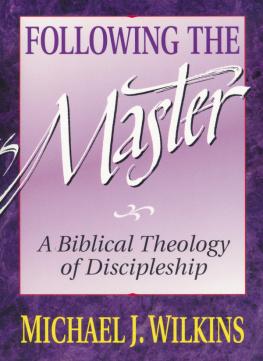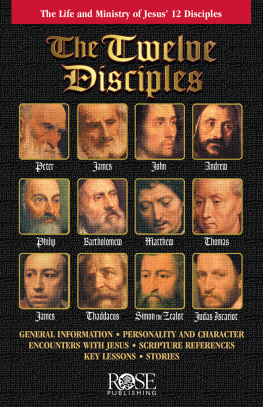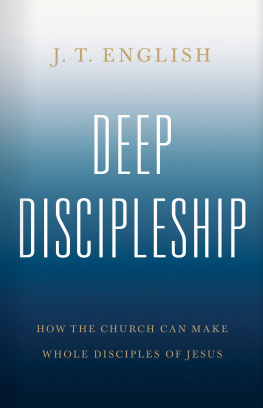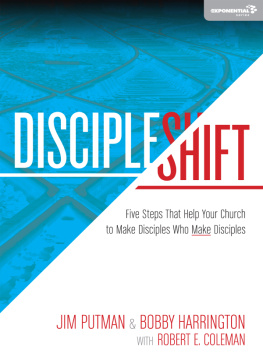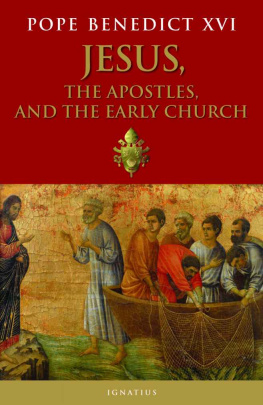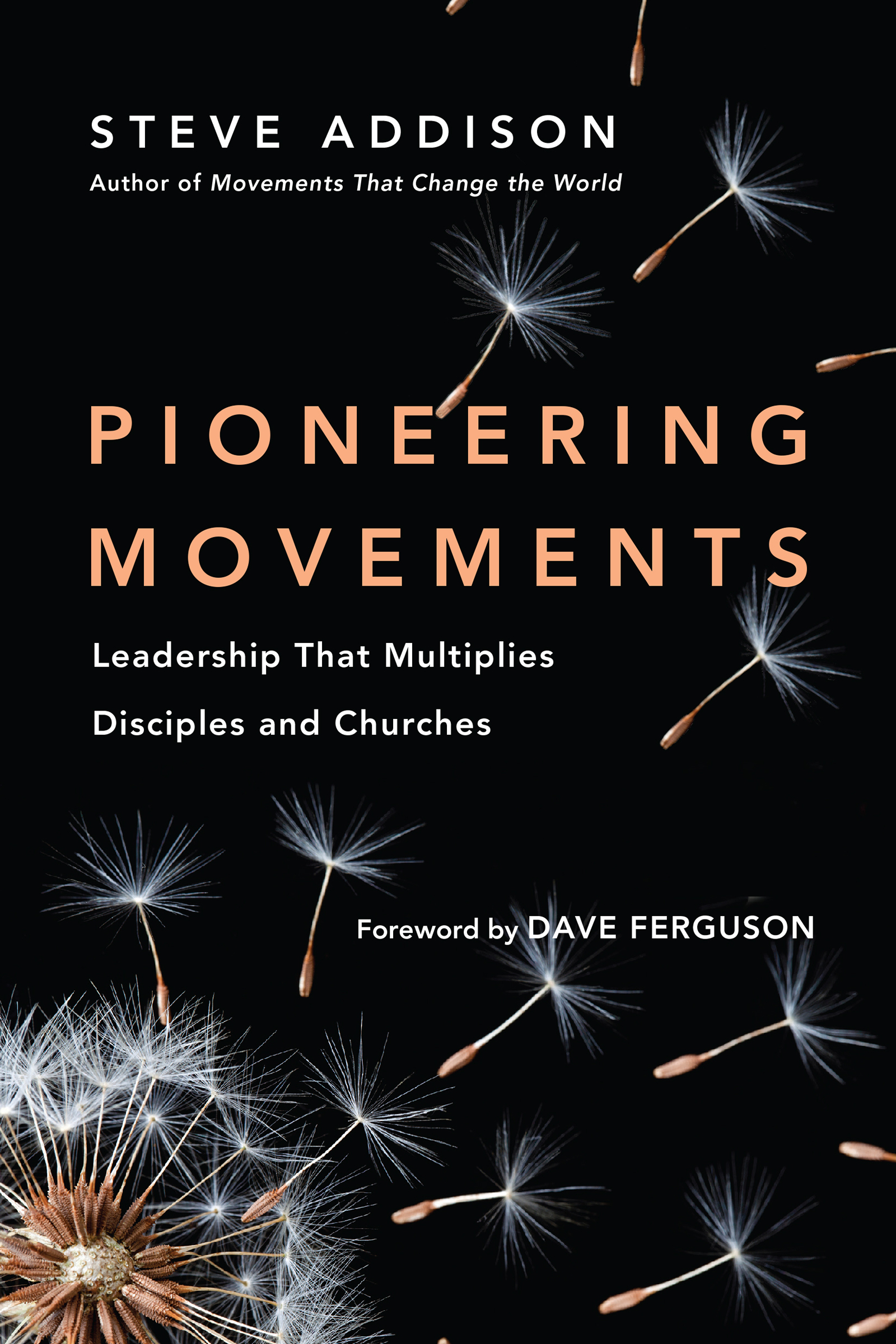Contents
Fixing our eyes on Jesus, the pioneer and perfecter of faith.
Hebrews 12:2
Foreword
Dave Ferguson
When I first stumbled upon Steve Addisons blog at movements.net it was like finding a long-lost brotheralbeit a more traveled, more experienced and much smarter brother. From then on I started routinely checking Steves latest posts. My kinship with him grew through our mutual passion and interest in movements. Through his writings, and without Steve knowing it, we became blood brothers with hearts beating fast to see the church realize its forgotten way as a transformative movement.
So, when I was given the opportunity to write and publish on the topic of movements and I needed some brotherly advice, I called Steve Addison. When I needed someone to challenge the church planters and network leaders within NewThing (the movement I lead) I asked Steve to teach us. As I made plans for the next Exponential conference, where our mission is to accelerate movements, I read everything that Steve put out for wisdom and guidance. While we live half a world apart, Steve and I share the same spiritual family and I proudly call him a brother in this great cause of Christ.
Like an older brother, he is once again a step ahead schooling us on the topic of movements. As you read Pioneering Movements you will discover three truths about movement making:
1. Movements are led by apostolic leaders. In Pioneering Movements, Addison does a great job of pointing to Jesus as our pioneering apostle and then helps us immensely by giving us both biblical and historical examples of apostolic leadership. In so doing, Steve presents a strong case that the church will not experience accelerated Great Commission expansion in the absence of this type of leadership. In fact, the greater the missional impact, the more obvious the pioneering apostolic leadership becomes. As a person who feels called to identify, equip and commission apostolic leaders, this will be a book that I will read and re-read. I will also pass along this book to church planters and network leaders within my influence because those with a pioneering gift need to understand the importance of their calling to the mission.
2. Movement is Gods means for accomplishing the mission of Jesus. Jesus challenges us in Acts 1:8 with a vision of a church on the move. As Jesus paints a picture of a preferable future, we see the church moving from Jerusalem, throughout Judea, Samaria and the uttermost parts of the world. Jesus left us with a vision for how his movement could accomplish the mission. Addison takes that vision and brilliantly gives us both strategy and story to show us the way. I absolutely love chapter six, where he explains the five levels of movement leadership. I cant wait to pass along that piece of developmental strategy to the men and women I am training to start networks and movements. Wisely, Steve goes beyond just strategy and supports it with real-world stories of pioneering leaders God has used around the world. As you read Pioneering Movements, you will be convicted that movement is not just the latest buzzword or trendy phrase; it is how God wants to accomplish his mission.
3. Movements are not just a topic to research, but a way to join God in his great redemptive work. My favorite line in this book is, I was an expert, but I wasnt living it out. What you are reading is a rarity because the author refuses to let movement become merely an academic project. It is rare because this book was written by a gentleman who knows as much about the Christian movement as anyone in the world, and at the same time is daring to put each teaching into practice. It is my hope and prayer that you will do the same. Do not just read these words. Follow Steves example and attempt to live them out. The insights in this book are from a brother of ours who understands how our ever-expanding and always-including family of God was meant to live and thrive.
For all those reasons and more, it is a great honor for me to recommend to you this great contribution to the mission of Jesus, my brother Steve Addisons Pioneering Movements: Leadership That Multiplies Disciples and Churches.
Introduction
The spontaneous expansion of the Church reduced to its element is a very simple thing. It asks for no elaborate organization, no large finances, no great numbers of paid missionaries.... What is necessary is faith.
Roland Allen, The Spontaneous Expansion of the Church
For better or for worse, movements create and remake the world we live in. If we want to change the world, we must understand movements. In simple terms, a movement is a group of people committed to changing the world. The spheres of politics, science, culture and faith are shaped and remade by movements.
Jesus founded the greatest movement this world has ever seen. That movement has at its heart the multiplication of disciples and churcheseverywhere. As the risen Lord, he still leads the way. This is a book for people who want to obey his command Come, follow me, and claim his promise and I will teach you to fish for people.
Ten years ago I had just come out of China and was passing through Singapore. There I met with two men, both named Smith. They trained and coached leaders across Asia who were multiplying disciples and churches. I was a student of movements; they knew movements from the inside. I shared with them what I had learned about the five characteristics of dynamic movementswhite-hot faith, commitment to a cause, contagious relationships, rapid mobilization and adaptive methods. Bill Smith and Steve Smith said I had done a good job. Their experience validated my research.
My trip to China had left me wondering whether my five characteristics should really be six. I felt I should add a crucial sixth characteristicpioneering or apostolic leadership. When I asked for their opinion, they said, We have never seen a church-planting movement without apostolic leadership.
Thats why I wrote this book.
This is my third book on movements. The first, Movements That Change the World, introduced the concept of movements and identified five characteristics of dynamic movements. The second, What Jesus Started, followed Jesus ministry as the founder of a disciple-making movement in the Gospels. That book also addressed how the risen Lord continued his ministry through the Spirit and the Word in the church in Acts. The book revealed how Jesus has been at work multiplying disciples and churches throughout history and around the world today.
Pioneering Movements is a book about leadership, specifically movement leadership. Not movements in a general sense but movements that make disciples and multiply communities of Jesus followers. Everywhere. Thats what Jesus did. Its what he trained his disciples to do. Its what he is doing today.
What to Expect
In What Jesus Started I examined Jesus as the founder of a missionary movement who equipped the Twelve, the early church and Paul as movement pioneers. This book will build on that foundation.
Im going to begin by sharing some of my journey. Before Jesus was a movement leader he was an obedient Son. We all have to learn that mission is not just an academic pursuit or a theoretical discussion of ministry models, its about who we are and what we do. Well never understand pioneering movements unless God shapes us from the inside out.



